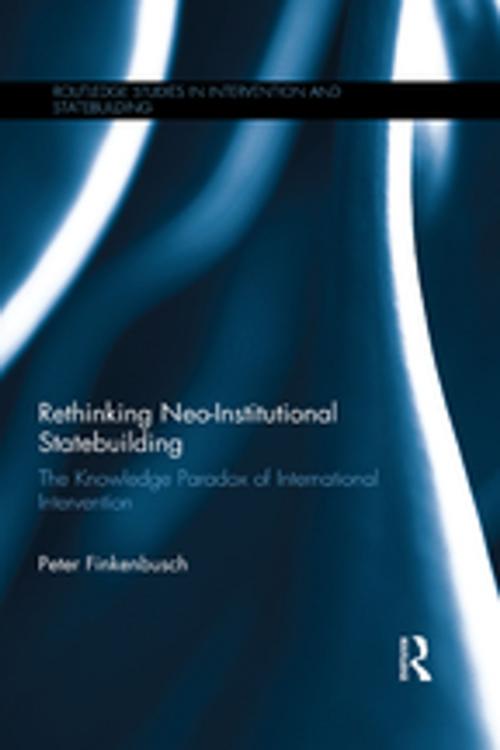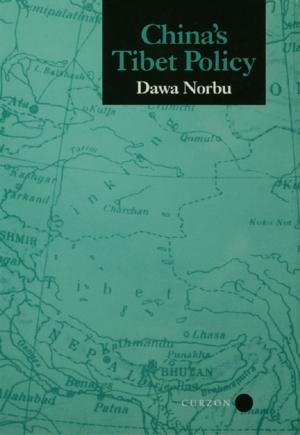Rethinking Neo-Institutional Statebuilding
The Knowledge Paradox of International Intervention
Nonfiction, Social & Cultural Studies, Political Science, International, International Security, International Relations| Author: | Peter Finkenbusch | ISBN: | 9781315402727 |
| Publisher: | Taylor and Francis | Publication: | May 18, 2017 |
| Imprint: | Routledge | Language: | English |
| Author: | Peter Finkenbusch |
| ISBN: | 9781315402727 |
| Publisher: | Taylor and Francis |
| Publication: | May 18, 2017 |
| Imprint: | Routledge |
| Language: | English |
This book examines how neo-institutional statebuilding undercuts international policy agency. Post-Cold War interventions are marked by a peculiar paradox. From peace and statebuilding projects in war-shattered societies to World Bank development programmes in Africa, the scope of external regulation has grown consistently while international policymakers are finding it increasingly difficult to formulate a political project regarding the Global South. This book seeks to make sense of a contradictory situation in which international policymakers are doing more statebuilding than ever while knowing less about it. The study argues that the crisis of international agency is driven by the demise of reductionist liberal-universal knowledge. It critically explores neo-institutionalism as a dominant policy framework, bringing out how the failure of intervention paves the way for more comprehensive, context-sensitive and bottom-up engagement. As a precondition and side-effect of this expansive process, reductionist liberal-universal knowledge is deconstructed. Paradoxically, the more policymakers learn within a neo-institutional frame of reference, the less they positively know. Without this epistemic foundation, it becomes difficult to act purposively in the world and formulate instrumental policy. The study illustrates these conceptual insights with reference to the Merida Initiative, a U.S.-Mexican security agreement signed in 2007.
Rethinking Neo-Institutional Statebuilding will be of much interest to students of statebuilding, international intervention, peace and conflict studies, Latin American politics and IR in general.
This book examines how neo-institutional statebuilding undercuts international policy agency. Post-Cold War interventions are marked by a peculiar paradox. From peace and statebuilding projects in war-shattered societies to World Bank development programmes in Africa, the scope of external regulation has grown consistently while international policymakers are finding it increasingly difficult to formulate a political project regarding the Global South. This book seeks to make sense of a contradictory situation in which international policymakers are doing more statebuilding than ever while knowing less about it. The study argues that the crisis of international agency is driven by the demise of reductionist liberal-universal knowledge. It critically explores neo-institutionalism as a dominant policy framework, bringing out how the failure of intervention paves the way for more comprehensive, context-sensitive and bottom-up engagement. As a precondition and side-effect of this expansive process, reductionist liberal-universal knowledge is deconstructed. Paradoxically, the more policymakers learn within a neo-institutional frame of reference, the less they positively know. Without this epistemic foundation, it becomes difficult to act purposively in the world and formulate instrumental policy. The study illustrates these conceptual insights with reference to the Merida Initiative, a U.S.-Mexican security agreement signed in 2007.
Rethinking Neo-Institutional Statebuilding will be of much interest to students of statebuilding, international intervention, peace and conflict studies, Latin American politics and IR in general.















